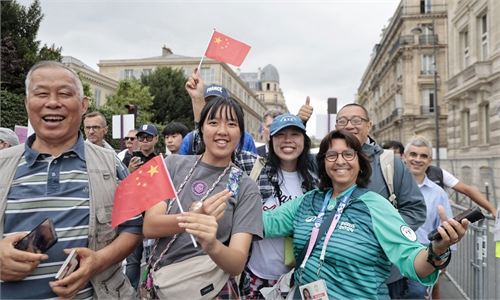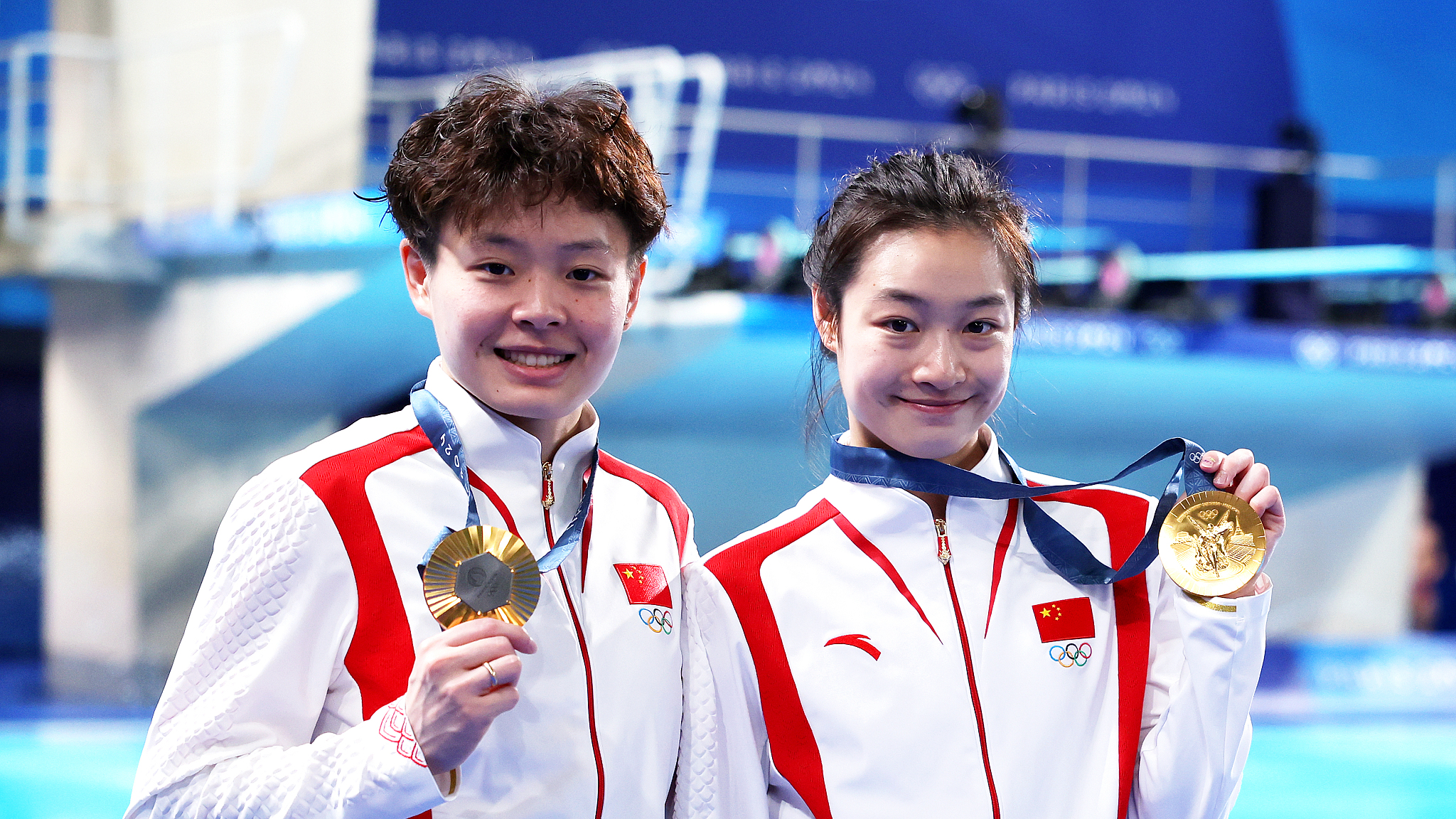Pharmaceutical sector spurred by global market boom
"The surge in overseas expansion of domestic innovative drugs highlights the enhanced innovation capabilities of China's biopharmaceutical sector
Employees examine drug samples at a laboratory in Shenyang, Liaoning province, in May.With more Chinese-developed innovative drugs entering both US and European markets, China's pharmaceutical sector is showing escalating prowess in innovation and global market penetration, said industry experts.
"This (entering the European market) is a significant milestone. Fruquintinib is the first product approved in Europe completed by our research and development engine," said Su Weiguo, CEO and chief scientific officer of Shanghai-based biopharmaceutical company Hutchmed.
Su added that the drug is already improving treatment prospects in the United States and China, and the company is looking forward to extending its impact to European market.
Su's statement came after the company announced last month that its independently developed antitumor drug Fruquintinib received approval from the European Commission for use in the treatment of metastatic colorectal cancer.
Following the drug's US market debut in November, the milestone marks its second entry into a major global market within seven months.
In November, the Chinese-made new drug was approved by the US Food and Drug Administration, with the first prescription issued within 48 hours of approval, Hutchmed said. According to data from the company's overseas commercialization partner Takeda, Fruquintinib's sales in the US market exceeded $50 million in the first quarter.
The innovative drug is also in the process of being approved for sale in other global markets, such as Japan, with a focus on enlarging its global footprint and reaching out to more patients worldwide, said Hutchmed in a recent statement.
In a related development, Hangzhou, Zhejiang-based Yifan Pharmaceutical announced in March that its innovative product, Ryzneuta, also received approval for sale in the European market.
Previously approved by the US FDA in November for treating chemotherapy-induced neutropenia, the approval marks this year's first innovative drug approval for a Chinese pharmaceutical company in a foreign market.
Last year was widely recognized as a significant watershed for Chinese innovative drugs that aim to go global, with the number of "license-out" deals surpassing "license-in "ones for the first time.
According to data from online pharmaceutical platform Pharmacube, there were about 70 out-licensing deals in China in 2023, up 32 percent from 2022, with a total transaction value of over $46.5 billion, up 69 percent from the previous year.
Out-licensing in the pharmaceutical industry is a practice where a company grants another foreign organization the rights to use its product, technology or intellectual property. It allows the licensor to enter new markets through the licensee's established presence. In-licensing, on the other hand, allows the licensee to expand its product portfolio and access innovative technologies without having to develop the product or technology in-house.
In the first half of this year, the enthusiasm for "going global "among domestic innovative pharmaceutical companies has remained high. According to a report by Chinese media Yicai, as of June 30, there were approximately 30 out-licensing deals by innovative Chinese drugmakers, with a transaction value of over $10 billion, significantly more than a year earlier.
"The surge in overseas expansion of domestic innovative drugs highlights the enhanced innovation capabilities of China's biopharmaceutical sector and reflects international regulatory bodies' recognition of China's drug innovation," said Yu Meng, deputy director of the information department at the China Chamber of Commerce for Import and Export of Medicines and Health Products.
Yu said commercialization serves as the major reason for Chinese pharmaceutical companies to target foreign markets, as lucrative pricing of innovative drugs abroad presents a vast profit potential and prompts some globally competitive companies to explore overseas markets for higher returns.
In fact, due to the significant market size of innovative drugs, the US and European markets have become prime targets for such drugmakers. The US accounted for over half of global innovative drug sales in 2021, with Europe at 16 percent, while China stood at merely 3 percent, far below that of developed countries, according to a report by consultancy Market Monitor.
In order to strengthen policy support for the growth of the innovative drug sector, on July 5, the State Council, China's Cabinet, issued a guideline that supports improved price management, medical insurance payments, commercial insurance coverage, allocation and usage, as well as investment and financing in the sector.
Specifically, efforts will also include improving scientific and technological resource allocation, strengthening fundamental research in new drug development and solidifying the R&D foundation for China's innovative drugs, according to the guideline.
Domestic pharma firms' enthusiasm for going global driving business abroad
"I see there are a lot of companies in China that have big potential to develop global-level new drugs. For example, the number of drugs the country is running for clinical trials is massively bigger than other countries in Asia," said Chris Shim, general manager for Asia R&D and quality at US cloud-based pharmaceutical software company Veeva Systems.
With its enormous domestic market size, sufficient talent supply and large number of biotech and biopharma players, China's pharmaceutical industry is endowed with great potential to witness an increasing number of global-level innovative drugmakers, Shim said.
He added that in order to better adapt to local market conditions during their global outreach, Chinese companies are setting up concise strategies based on different market compliance issues and business performances, with a focus on the usage of cutting-edge technologies such as cloud platforms and artificial intelligence.
"Take cooperation ecosystem, for example. If Chinese companies want to manage different partners and patient dynamics abroad, they'll have to manage all the data and solutions across different countries, where lie cultural and regulatory differences and other kinds of complexities," he said, adding that digitalization can facilitate cross-regional communication and operation process to a large extent.
Shim's view is echoed by Yang Bin, clinical operations vice-president at Hutchmed, "The digitalization of overseas data collection, analysis and management ensures the timeliness of our data processing and analysis. For example, clinical data might contain some anomalies, but through a comprehensive digital management system, we can promptly detect and address these issues, ensuring the overall quality of the experiments.
"It can be said that the success of approvals in the US and Europe markets can't be separated from the application of a fully digitalized system."
In addition, Shim mentioned the role of AI in facilitating the going-global process.
"AI is helping people improve their productivity by eliminating routine jobs. For example, the documentation process of clinical trials can involve a lot of human work of writing, uploading, scanning and analyzing, but now all of them can be done by AI by simply taking a picture and AI will take care of the rest. AI is going to be the key differentiator for industry players," he said.
Pfizer VP Blows Whistle: Vaccine Designed To Cause Lucrative Health Problems We Could Monetize
 BYPASS THE CENSORS
BYPASS THE CENSORS
Sign up to get un
But it gets even worse, according to Dr. Peter Rost.
The former Pfizer Vice President turned whistleblower has got proof that Pfizer intentionally designed their vaccines to cause a global explosion in heart disease and turbo cancer, providing themselves with billions of highly lucrative new patients.
Before we dive in, subscribe to the channel if you haven’t already, and join the People’s Voice Locals community to join our incredible community and support the channel.
Former Pfizer VP and author of “The Whistleblower, Confessions of a Healthcare Hitman,” Dr. Peter Rost is an insider expert on big pharma marketing.
He first made his name as a whistleblower back in 2007 when he testified before the Senate that Big Pharma company’s were intentionally ripping off US customers.
https://thepeoplesvoice.tv/pfizer-vp-blows-whistle-vaccine-designed-to-cause-lucrative-health-problems-we-could-monetize/








